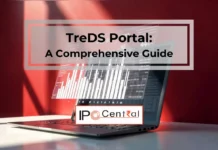What is the difference between IPO and FPO? The terms IPO and FPO might appear akin, perhaps even siblings, but do they truly share a close connection, or do they simply exist alongside each other? Delving into the depths of the stock market, we uncover the genuine disparities between these two intriguing concepts.

Keep reading to learn more!
Deciphering IPO in the Realm of Share Market
Unveiling the acronym IPO, we find it stands for Initial Public Offering. This intricate procedure marks a pivotal moment for a company as it ventures to procure capital from the masses by making a portion of its stocks available for sale.
The initiation of this stock journey transpires within the primary market through the vehicle of an IPO, thereafter transitioning to the secondary market, where shares exchange hands amongst the public. Often referred to as the After Issue Market, this secondary realm comes into play.
Read Also: State-wise IPO in India
Unraveling FPO’s Significance in the Share Market
In a parallel narrative, a publicly traded enterprise embarks on a venture known as a follow-on public offering (FPO), which is the issuance of new shares to investors. This eventuality arises subsequent to an IPO, with the company opting to release additional shares to the public in a follow-on public offering. This phenomenon is known by two synonymous terms: “secondary” and “follow-on.”
Read Also: Difference Between Primary and Secondary Market
Categorizing FPO: Diving Deeper
Within the realm of FPO, two distinct categories take center stage:
Dilutive Offering: Enhancing Liquidity
This iteration of public offering encompasses the augmentation of available shares within the public domain. While the company’s overall value remains constant, the liquidity of shares experiences an upswing. Notably, this shift in distribution often leads to a decline in earnings per share (EPS).
Non-Dilutive Offering: Transferring Ownership
Conversely, a non-dilutive offering materializes when significant shareholders, such as founders and directors, opt to relinquish their shares to the public. In this scenario, the company itself reaps no rewards from the offering, as the proceeds from share sales are directed toward the respective shareholders. Importantly, since no new shares enter circulation, the earnings per share (EPS) retain their original standing.
Read Also: All about Non-convertible Debentures (NCDs)
Difference Between FPO and IPO (IPO vs FPO)
Below, we chart the essential difference between IPO and FPO:
| FPO | IPO | |
| Definition | As a follow-up to the IPO, the company plans to sell its equity on the stock exchange in order to obtain capital | The procedure through which a company initially issues shares is known as an IPO |
| Risk Factor | Lower risk than IPO | Generally riskier than FPO |
| Price | FPO price below current market value | IPO price set based on book-building or fixed pricing |
| Company Type | Listed Company | Private Company |
| Types | Dilutive offering/Non-Dilutive offering | Fixed price issue/Book building issue |
Read Also: All-time largest IPOs in India at a glance
A Concise Recap: FPO vs IPO
- In succinct terms, an IPO, or Initial Public Offering, signifies the inaugural process of a company venturing into the public domain to raise capital through the sale of stocks. The primary market serves as the birthplace of these shares, followed by their migration to the secondary market, colloquially referred to as the After Issue Market.
- Conversely, the FPO, or follow-on public offering, materializes when a publicly traded corporation unveils additional shares for investment. This takes place post-IPO and encompasses two key categories: dilutive and non-dilutive offerings.
- To encapsulate the distinction, the crux of the matter lies in timing, where IPO lays the foundation for subsequent FPO. The dichotomy between FPO and IPO shifts from a mere comparison to an understanding of how these two financial milestones complement each other. While FPOs may occur multiple times in response to funding needs, IPOs remain a singular event.
In conclusion, the key difference between IPO and FPO is related to timing and the former always leads the latter. Similarly, it isn’t much of a question of FPO vs IPO as companies can bring FPO multiple times depending on when funds are required while IPO can be done only once.




































